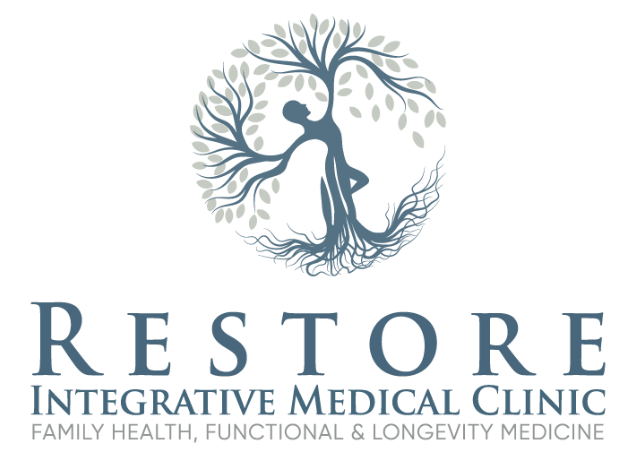
Cancer treatment can feel like a monumental challenge—not only due to the disease itself but also because of the complex effects therapies have on the body. One vital yet sometimes overlooked factor in cancer care is gut health and cancer—specifically, the role of the gut microbiome in shaping immunity, influencing treatment responses, and affecting overall outcomes. By nurturing your microbiome during cancer care, you can potentially enhance therapy effectiveness and reduce side effects.
This article explores the science behind the gut microbiome’s relationship to cancer, explains practical strategies to support your gut health during treatment, and highlights how this knowledge integrates into a holistic, functional medicine approach.
What Is the Gut Microbiome and Why Is It Important in Cancer?
The gut microbiome is a vast community of trillions of microorganisms, including bacteria, viruses, fungi, and their genetic material, primarily residing in your large intestine. These microorganisms are essential for digestion, vitamin synthesis, immune system development, and protecting against harmful pathogens.
In the context of cancer, your gut microbiome plays an influential role by:
- Modulating the immune system’s ability to identify and attack tumor cells.
- Regulating inflammation levels throughout the body.
- Metabolizing and modifying anticancer drugs, which can impact their effectiveness and toxicity.
Research shows that patients with diverse, balanced gut microbial communities tend to respond better to treatments such as immunotherapy and chemotherapy. In contrast, low diversity or an imbalance (dysbiosis) has been associated with poorer treatment outcomes and heightened side effects.
How the Gut Microbiome Influences Cancer Biology
The gut microbiome impacts cancer development and response through several key mechanisms:
- Immune Regulation: Beneficial bacteria stimulate immune cells like cytotoxic T cells and natural killer cells, enhancing the body’s capacity to detect and destroy cancer cells. An imbalanced microbiome may suppress immune function by expanding regulatory T cells and other cells that prevent effective tumor targeting.
- Inflammation Modulation: Microbial metabolites, particularly short-chain fatty acids (SCFAs) such as butyrate, exert anti-inflammatory effects by maintaining the gut barrier and reducing pro-inflammatory signaling pathways. A compromised gut barrier (“leaky gut”) allows inflammatory microbial products into the bloodstream, fueling cancer-promoting inflammation.
- Metabolic and Epigenetic Interactions: Gut microbes metabolize dietary compounds into bioactive molecules influencing cancer cell metabolism and gene expression. These molecules can either promote or inhibit tumor growth by altering energy pathways and epigenetic markers like DNA methylation.
Understanding these intricate interactions sheds light on why a balanced gut microbiome is crucial in supporting effective cancer therapies and slowing tumor progression.
Scientific Evidence Linking Gut Microbiome and Cancer Treatment Response
Pioneering studies highlight the microbiome’s pivotal role in cancer therapy:
- Immunotherapy: In metastatic melanoma patients, those with higher gut microbiome diversity and abundance of specific beneficial bacteria (Faecalibacterium, Bifidobacterium) had better responses to anti-PD-1 checkpoint inhibitors. Transferring good microbiome samples into mice replicated improved tumor control.
- Chemotherapy & Radiation: Microbial communities affect drug metabolism, influencing efficacy and toxicity. Radiation disrupts gut flora, exacerbating gastrointestinal symptoms, but dietary and probiotic interventions may mitigate these side effects.
Collectively, these findings underscore the microbiome as a promising target to enhance cancer treatment and survivorship.
How to Nurture Your Gut Microbiome During Cancer Care
Protecting and nurturing your gut microbiome can be integrated into your cancer care plan through these practical steps:
1. Eat a Fiber-Rich, Plant-Based Diet
A diverse intake of fruits, vegetables, legumes, nuts, and whole grains provides dietary fiber that feeds beneficial gut bacteria. Fiber fermentation produces SCFAs, which help reduce inflammation and support gut lining integrity.
2. Incorporate Fermented Foods and Probiotics
Foods like yogurt, kefir, sauerkraut, and kimchi contain live beneficial bacteria that may help restore balance. Probiotic supplements can also be considered but ideally under supervision during cancer therapy.
3. Limit Processed Foods, Sugars, and Unnecessary Antibiotics
Excessive processed foods and sugar promote harmful bacteria that disrupt microbiome balance. Judicious antibiotic use is important as these medications impact gut flora diversity and may hinder treatment response.
4. Manage Stress and Avoid Smoking
Stress alters gut motility and microbial composition negatively, while smoking exacerbates inflammation. Stress reduction practices such as mindfulness and yoga can support gut and immune health simultaneously.
5. Collaborate with Your Healthcare Team
Consult with integrative oncology specialists and nutritionists who can tailor microbiome-supportive strategies, including diet plans and potential microbial testing.
Integrative Support at Restore Clinic
At Restore, we incorporate the growing science of gut health and cancer into a personalized functional medicine framework. Our services include nutrition counselling focused on microbiome-friendly diets, stress management techniques, and supportive therapies designed to optimize your microbiome and enhance treatment outcomes.
Learn more on our Integrative Cancer Support page and explore how we can support your cancer care journey holistically.
Conclusion
The gut microbiome is increasingly recognized as a cornerstone in cancer care—one that influences immune function, treatment responsiveness, and symptom management. Scientific research underscores that maintaining a diverse and balanced microbiota enhances immunotherapy and chemotherapy efficacy while reducing adverse effects. By actively supporting your gut health through diet, lifestyle, and integrative therapies, you empower your body’s natural defenses and improve your overall cancer care experience.
A holistic understanding of gut health and cancer offers a personalized, promising pathway towards better treatment outcomes and improved quality of life.
References
- Gopalakrishnan V, Spencer CN, Nezi L, et al. Gut microbiome modulates response to anti–PD-1 immunotherapy in melanoma patients. Science. 2018;359(6371):97-103. Read more
- Zhang Y, Sun Z, Xia L, et al. Gut microbiota as a new target for anticancer therapy. NPJ Biofilms and Microbiomes. 2025;11(1):23. Read more
- Zheng Y, Liwinski T, Elinav E. Interaction between microbiota and immunity in health and disease. Cell Res. 2020;30(6):492-506. Read more
